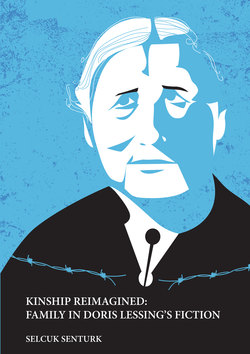Читать книгу KINSHIP REIMAGINED:FAMILY IN DORIS LESSINGS FICTION - Selçuk Sentürk - Страница 9
На сайте Литреса книга снята с продажи.
ОглавлениеForeword
Doris Lessing’s relationship with her own family can only be described as fraught. If we examine the headline facts it is not hard to see why. Her mother and father had been traumatised by WWI. She always felt that her brother was the really wanted child. She left two children behind when she came to England after WWII and then became a mother-figure to the difficult and rebellious Jenny Diski in the 1960s. What wonderful writing these fraught relationships birthed! From Under My Skin (1994) to Alfred and Emily (2008), whether fiction or imaginative autobiography, her work is steeped in her experiences with family.
This book is the first to explore the representation of family in Doris Lessing’s fiction. As a scholar of women’s writing and the author of several books and articles on Doris Lessing, I was delighted to be invited to examine Selcuk Senturk’s PhD thesis at the University of Leicester, UK in 2019. Selcuk and I have presented at many conferences together – including (memorably) the snow-bound MLA in New York City in 2018 – and I am especially pleased to introduce the book that has resulted from his thesis. Kinship Reimagined: Family in Fiction of Doris Lessing examines how Lessing’s novels both critique traditional patriarchal family structures and explore alternative and non-normative configurations of family. The book ranges intelligently around the history and theorisation of the family in the twentieth century, bringing in Marxist and feminist theories of the family, as well as tracing the development of functionalism and examining the later impact of the New Right, queer kinship, and families of choice. This material illuminates Lessing’s own writing career and specific history and interests, as well as breaking new ground in using her work to reconsider changes in the family over the twentieth century. The book makes a convincing case for the significance and continuing relevance for us of Lessing’s work in this area.
In each chapter, a novel from earlier in Lessing’s writing career is compared to a later one, an approach which offers insight into how her portrayal of families changed over time. Lessing’s views of the family alter, even develop if we compare her earlier and later fiction in this innovative way. Lessing’s representations of the family are considered in three phases: the political, the mystical and the environmental. Beginning with Lessing’s engagement with communism, the book has suggestive points to make about the novels The Good Terrorist (1985) and The Sweetest Dream (2001), which explore both the promise and the limitations of communism as a means through which traditional family structures might be challenged. These books expose communism’s many blind spots in relation to the liberation of women and LGBTQ+ rights. Lessing’s work on the family in The Summer Before the Dark (1973) and The Fifth Child (1988) is then positioned in relation to second wave feminism and its socio-political contexts. The discussion of feminism and the family contains many insights about the gendered division of labour, emotional labour, and invisible labour that are still highly pertinent. Lessing’s interest in Sufism is examined as a belief system (termed here ‘sufeminism’) which transcends gender binaries and hierarchies, and therefore offers a basis in The Memoirs of a Survivor (1971) and Ben, in the World (2000) for rethinking family structures and relationships. Finally, the book also conducts a postcolonial ecofeminist reading of Lessing’s The Grass is Singing (1950) and Mara and Dann: An Adventure (1999), examining her portrayal of colonial landscapes and linking these to the novels’ gender dynamics. This book’s wonderful achievement is that it traces how Lessing worked on her own experience, in the context of the thinking about the family that surrounded her, to create her fiction of the family.
Susan Watkins, Leeds, 2020
Professor of Women’s Writing
